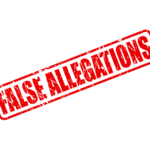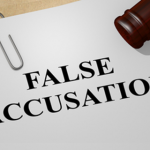The Offence of Giving False or Misleading Information in New South Wales

Three-year old William Tyrrell disappeared without a trace in 2014 from his foster grandmother’s home in Kendall in New South Wales wearing a spiderman costume.
His disappearance sparked one of the most expansive and resourced manhunts in Australia’s history, led by a specialist NSW Policing unit known as Strike Force Rosann, which continues to be in operation seven years later.
A Coronial Inquest into William’s disappearance was conducted from March 2019, ending in October 2020.
Coroner’s findings delayed
The inquest’s findings were to be handed down by the Deputy State Coroner in June last year, but this has been delayed.
At the end of 2021, police announced they had ‘new evidence’ which they would use to resume a forensic search of the area around where William disappeared.
A one million dollar reward remains in place for the return of William, or for information which leads to his whereabouts.
Earlier this year, police issued a statement saying:
“Strike Force Rosann detectives are continuing to conduct interviews and other investigative activity, including those under Coronial Orders, as well as reviewing all material with the assistance of various experts”.
Controversy
The investigation into William’s disappearance has not been without controversy.
In 2019 Bill Spedding took civil action against NSW Police for reputational damage. Mr Spedding was declared a ‘person of interest’ by police after they found a spiderman toy in his work vehicle not long the disappearance.
He had also been to William’s foster-grandmother’s house several days prior to William’s disappearance to fix her broken washing machine.
Police proceeded to charge Mr Spedding with several historical sexual offences, but eventually withdraw those charges due to a lack of evidence.
Despite the withdrawal, Mr Spedding continues to attract suspicion and reputational damage, having been shunned by many members of his community and suffered significant mental harm and financial loss.
Detective convicted over illegal recordings
In 2020 former New South Wales homicide detective Gary Jubelin, who had been assigned to the Tyrrell case in the early months, lost an appeal against an earlier conviction for illegally recording conversations with a person of interest.
He had already resigned from the police force before charges of breaching the Surveillance Act 2007 were laid, after allegations of misconduct (which were under internal investigation by NSW police).
Section 7 of that Act makes it an offence punishable by up to five years’ imprisonment and/or $55,000 for a person to knowingly install, use or cause to be used or maintain a listening device to overhear, record, monitor or listen to a private conversation to which the person is not a party, or to record a private conversation to which the person is a party.
The Act contains several exceptions to this rule, but none of them were found to have applied to officer Jubelin.
He was removed from the Tyrrell case in 2019.
Foster grandmother charged
Now, William’s foster mother has been charged with knowingly giving false or misleading evidence to the New South Wales Crime Commission, which is often tasked with investigating serious crimes.
She is due to appear before the Downing Centre Local Court in May 2021.
William’s foster father was charged in January 2021 with two counts of the same offence. Both, who cannot be named for legal reasons, are also facing other charges, unrelated to William’s disappearance.
The offence of giving false or misleading information to the Crime Commission of NSW
Giving false or misleading information to the New South Wales Crime Commission is an offence under section 27 of the Crimes Commission Act 2021 which carries a maximum penalty of 5 years in prison.
To establish the offence, the prosecution must prove beyond reasonable doubt that:
- You were at a hearing before the Crime Commission,
- You gave evidence that was false or misleading in a material particular, and
- You knew that evidence was so false or misleading.
A material particular is information which could have some bearing on the outcome of the inquiry or investigation.
Duress is a legal defence to the charge.
The general offence of giving false or misleading information in NSW
Giving false or misleading information is an offence under section 307B of the Crimes Act 1900 which carries a maximum penalty of 2 years in prison.
To establish the offence, the prosecution must prove beyond reasonable doubt that:
- You gave information to another person,
- The information was false or misleading, or omitted a matter or thing without which it was false or misleading,
- You knew the information was false or misleading, and
- The information was given:
- To a public authority, or
- To a person exercising or performing a power, authority, duty or function under or in connection with any NSW law, or
- In compliance or purported compliance with any NSW law.
The information is only ‘misleading’ if it is false or misleading in a material particular.
A ‘public authority’ is any person or body with a legal mandate to administer or govern any aspect of public life. The definition encompasses authorities with delegated power such as local councils, police officers and government agencies and departments.
A person exercising a power, authority, duty or function under New South Wales law includes judicial officers such as magistrates, judges, justices and coroners and well as administrators such as court registrars.
You cannot be found guilty of the offence if you are able to establish, on the balance of probabilities, that:
- The information was given to a public authority, or a person exercising a power, authority, duty or function under a New South Wales law, and
- Before you gave the information, the public authority or person described failed to take reasonable steps to inform you that giving false or misleading information is an offence.
Duress is a defence to the charge.








